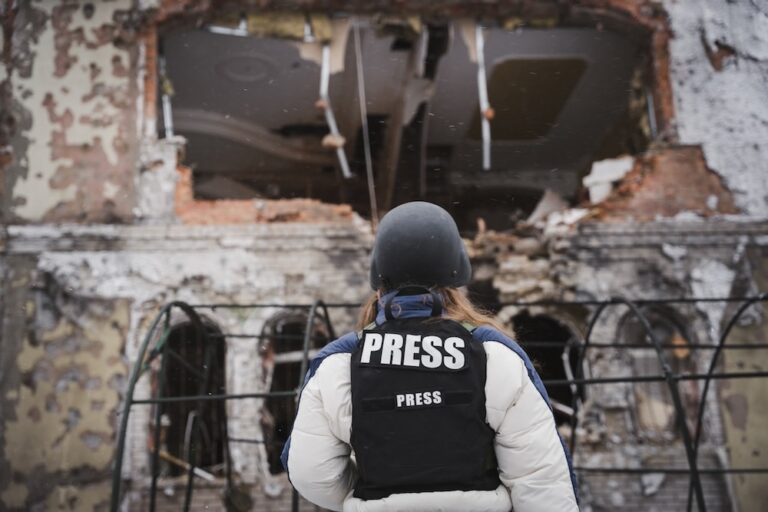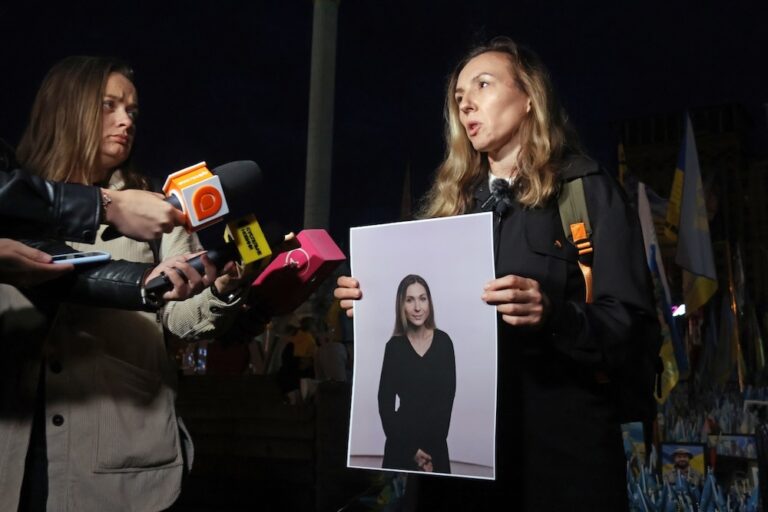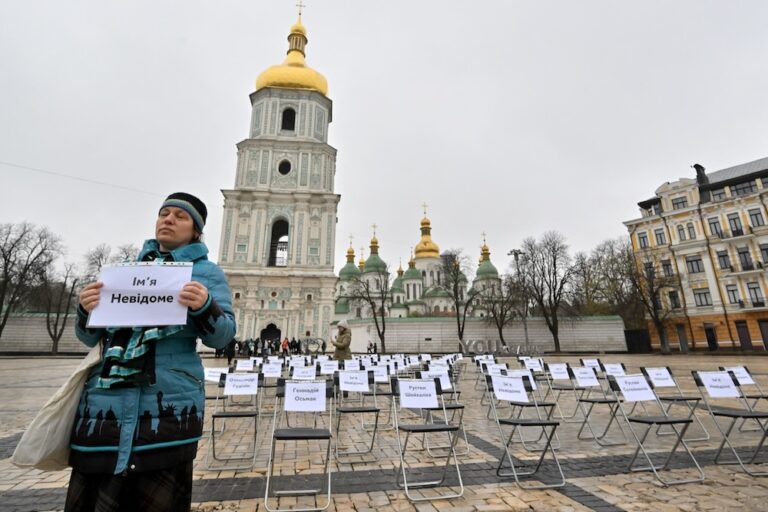(RSF/IFEX) – In a letter to Ukraine’s public prosecutor’s office, RSF supported all the demands of murdered journalist Georgiy Gongadze’s mother, following the prosecutor’s office’s acknowledgement on 26 February 2001 that the journalist was indeed murdered. Despite DNA test results, the prosecutor’s office had until now maintained that the body’s identity could not be positively […]
(RSF/IFEX) – In a letter to Ukraine’s public prosecutor’s office, RSF supported all the demands of murdered journalist Georgiy Gongadze’s mother, following the prosecutor’s office’s acknowledgement on 26 February 2001 that the journalist was indeed murdered. Despite DNA test results, the prosecutor’s office had until now maintained that the body’s identity could not be positively ascertained, thus depriving the victim’s family of any rights in the proceedings.
“We hope that this acknowledgement will now enable progress to be made in the investigation and end months of a scandalous and indecent attitude regarding the victim’s family,” said RSF Secretary-General Robert Ménard. “Everything was done to keep them from taking part in the investigation. Once again, together with Mrs. Gongadze, we are calling for an impartial investigation, a new autopsy on the body and the dismissal of the public prosecutor in charge of the investigation. We also condemn the serious threats and intimidation against several journalists this month,” he added.
According to information received by RSF, on 26 February, the public prosecutor’s office acknowledged that the headless body found near Kiev on 2 November 2000 was indeed that of journalist Gongadze and that he had been murdered. On 11 January, Ukraine’s public prosecutor, Mihailo Potebenko, announced that the body was “99.64 per cent” certain to be Gongadze’s, according to several DNA tests. He nevertheless explained that recent eyewitness accounts of people having seen and recognised Gongadze in Lviv (in the country’s west) after his disappearance meant that there was a glimmer of hope that the journalist would be found alive. Gongadze’s wife characterised these accounts as “grotesque” and an attempt to create doubt despite the body’s positive identification.
In a report titled “The Mutilated Truth: Investigation into the Murder of Journalist Georgiy Gongadze”, (available at www.rsf.fr), RSF denounced the accumulation of exceptionally serious errors committed by the Ukrainian judicial authorities throughout the investigation on the kidnapping and murder of the journalist. The investigation seems to have been primarily focused on protecting the executive branch of government from accusations levelled against it, rather than trying to get to the truth. The journalist’s wife and mother were kept at a distance from the investigation into the headless body for as long as possible. Gongadze’s wife was only allowed to see the body for identification purposes one month after it had been discovered. The body was kept in a provincial morgue with no means of refrigeration for thirteen days after its discovery. The judicial authorities also delayed DNA testing, refused to investigate threats to the journalist by official services in the weeks prior to his disappearance and persistently refused to grand the journalist’s wife and mother the status of parties claiming damages, which would have enabled them to intervene in the proceedings.


